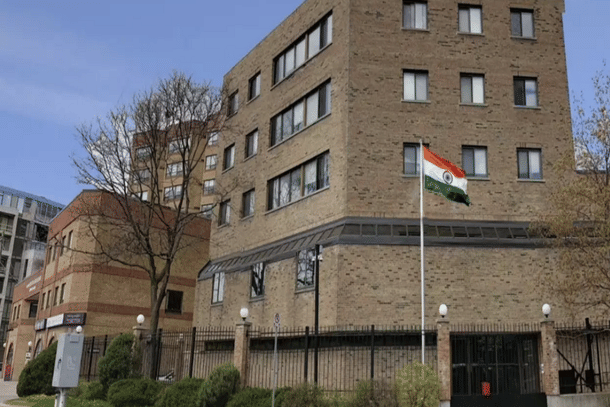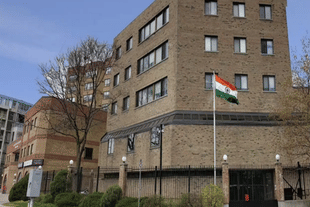World
Canada Expels Indian Diplomat After Accusing New Delhi Of Interference, Killing Of 'Canadian Citizen'
Nayan Dwivedi
Sep 19, 2023, 10:43 AM | Updated 10:43 AM IST
Save & read from anywhere!
Bookmark stories for easy access on any device or the Swarajya app.


Canada has lodged an accusation against India, alleging its involvement in the assassination of a Khalistani terrorist and has retaliated by expelling New Delhi's top intelligence official stationed in Ottawa.
This diplomatic maneuver has exacerbated the already strained relations between Ottawa and New Delhi, pushing them to a new nadir.
In an emergency session of the parliamentary opposition, Prime Minister Justin Trudeau divulged that his government had received "credible allegations" linking Indian agents to the murder of Khalistani extremist Hardeep Singh Nijjar in British Columbia in June.
The Canadian government has fervently implored the Indian authorities to collaborate in resolving this matter, underscoring their unwavering commitment to this pressing issue.
Foreign Minister Melanie Jolie announced that the Trudeau administration had promptly taken action in response to these recent developments.
She revealed that a high-ranking Indian diplomat had been expelled from Canada, though the diplomat's identity remained undisclosed.
Jolie went on to identify the individual as the head of India's foreign intelligence agency, the Research and Analysis Wing (RAW), stationed in Canada.
On 18 June, Nijjar, a wanted terrorist as declared by India, was fatally shot in Surrey, a suburb of Vancouver known for its significant Sikh community.
Nijjar was accused of perpetrating acts of terrorism in India. The murder case remains unresolved, casting a pall over relations between India and Canada. Indian authorities are dissatisfied with Ottawa's handling of the terrorism issue, asserting that Canada has neglected to address the activities of Khalistani separatism supporters.
Jocelyn Coulon, a former adviser to Trudeau, cautioned that Canada's accusation could have far-reaching global implications. Coulon, an independent researcher, contended that India might be heading toward joining the group of nations conducting political assassinations abroad, akin to the Saudi Arabian involvement in journalist Jamal Khashoggi's murder in Turkey in 2018.
Tensions between India and Canada escalated during the G20 summit in New Delhi, which was attended by Prime Minister Trudeau.
During their meeting, Indian Prime Minister Narendra Modi expressed apprehensions about the persistent anti-India activities of extremist factions in Canada, as outlined in a government statement.
In response, Canada has decided to suspend talks on a free trade agreement with India. Prime Minister Trudeau emphasized Canada's steadfast support for "freedom of expression, freedom of conscience, and freedom of peaceful protest" while adamantly opposing hatred.
Nayan Dwivedi is Staff Writer at Swarajya.





